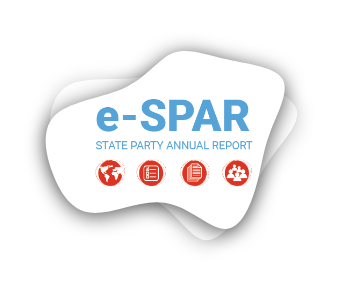Under the International Health Regulations(IHR) 2005 all States Parties are required to have or develop and maintain minimum core public health capacities to implement the IHR (2005), and report the status of implementation annually, as stipulated in Article 54 of the Regulations.
The formal submission of data from State Parties to the WHO via the IHR annual reports is very important and will be used as the basis for:
- reporting to the World Health Assembly, on the status of implementation of these Regulations;
- informing the GPW 13 indicator on emergency preparedness; and
- informing UN SDG Goal 3 for indicator 3.d.1 – International Health Regulations (IHR) capacity and health emergency preparedness.
Detailed information on 2019 and previous years up to 2010 of the IHR annual reporting by State Parties are primarily published and available on e-SPAR platform and also at the WHO Global Health Observatory website










































































































